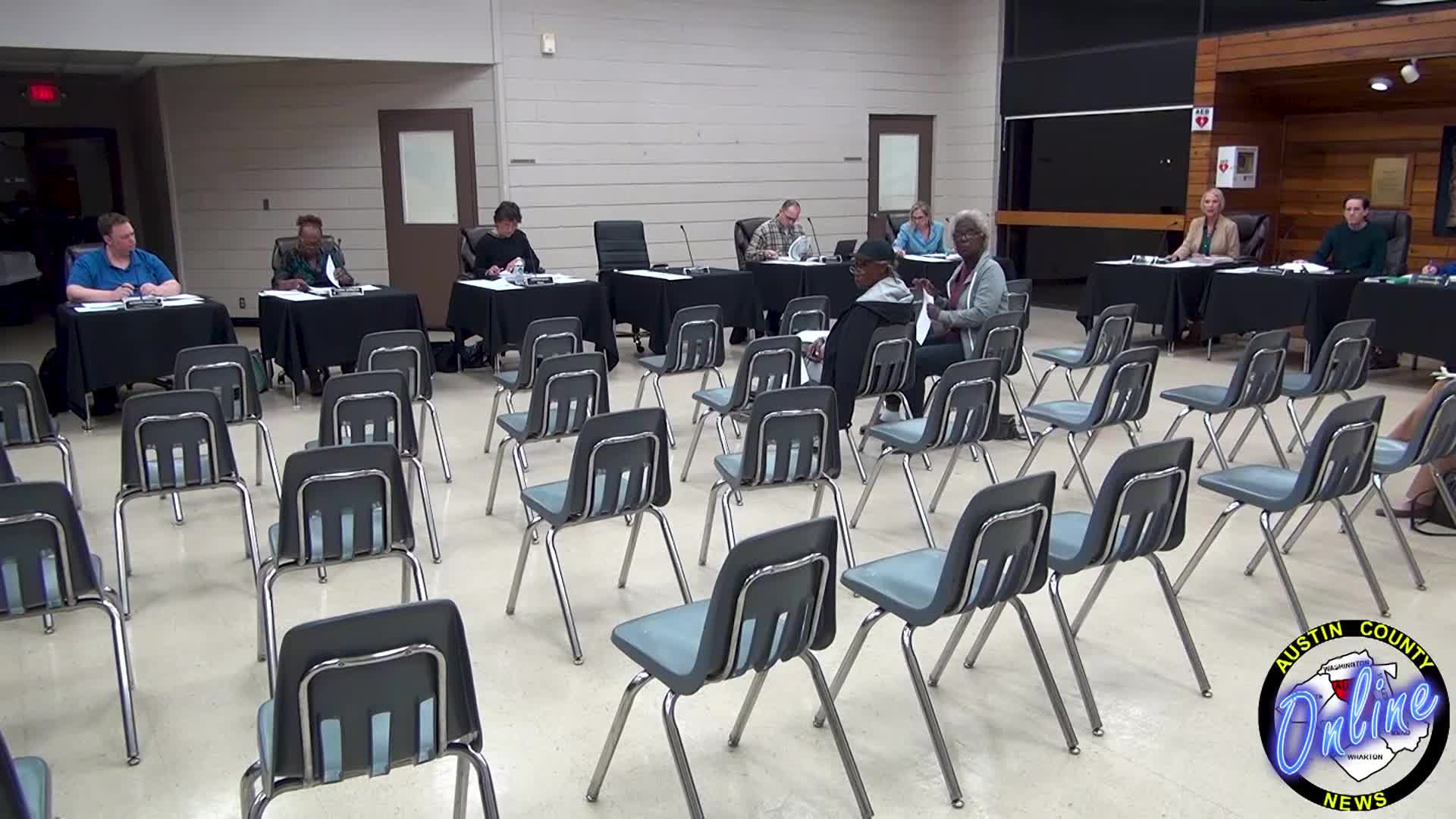Sealy council accepts 2024 utility rate recommendations; prepares fee-schedule second reading
Get AI-powered insights, summaries, and transcripts
Subscribe
Summary
Council accepted Strand’s utility-rate recommendations for 2024 that would raise typical residential water and sewer bills by about 2% and gas by about 7–8%; staff will return rates as part of a master fee schedule second reading.
Sealy — The Sealy City Council voted to accept engineering firm Strand’s utility-rate recommendations for 2024 and to include the changes in a master fee schedule ordinance at second reading. The council’s action was to accept the study so staff can prepare ordinance language for the next meeting. Why it matters: The study recalibrates water, sewer, gas and solid-waste rates to better align revenue with operating and capital needs identified in the city’s master utility plan and to reflect projected growth; councilors emphasized focusing on the 2024 numbers because capital projects and growth can change year-to-year. What the study recommends: Morgan, a Strand consultant, said the recommended 2024 rates were intended to be “just and reasonable” under the Texas utility code and reflected the master utility plan and a multi-year forecast. Morgan explained the proposal would: - Water and sewer: separate regular accounts into residential, commercial, industrial and governmental classes to reduce the burden on residential customers. For a typical residential household (about 6,000 gallons monthly for water, about 5,000 gallons for sewer), the presented 2024 rates would increase bills roughly 2%, or about $0.80 per month. - Gas: separate classes and raise residential gas rates modestly so that a typical household (about 25 CCF per month) would see a 7–8% increase, roughly $2–$3 per month. Morgan noted those gas increases would move toward covering expected gas expenses but might not fully cover them in 2024. - Solid waste: reflect the contractor’s annual increases; staff proposed a 4.5% residential increase (about $2–$3 per month) and a larger commercial increase. Morgan said the study incorporated CIP projects where appropriate but removed or recommended funding some projects through previously issued certificates of obligation to avoid an undue rate shock. Staff clarifications and constraints: Kimber said the study should be used to set 2024 rates only, because subsequent annual adjustments will depend on the status of capital projects, development agreements and other variables. City staff also explained impact fees that were calculated to cover 50% of the growth-related portion of certain capital projects; those fees could reimburse some CO-funded projects up to the 50% growth share. Motion and next steps: The council voted to accept Strand’s recommendations for 2024. Staff will prepare the ordinance changes and bring the master fee schedule (second reading) back to council; if approved on second reading, the changes will take effect per the ordinance schedule. Ending: Councilors stressed the importance of minimizing the burden on long-time residents while maintaining utility-system financial health; staff will return with ordinance language and timing for implementation.
